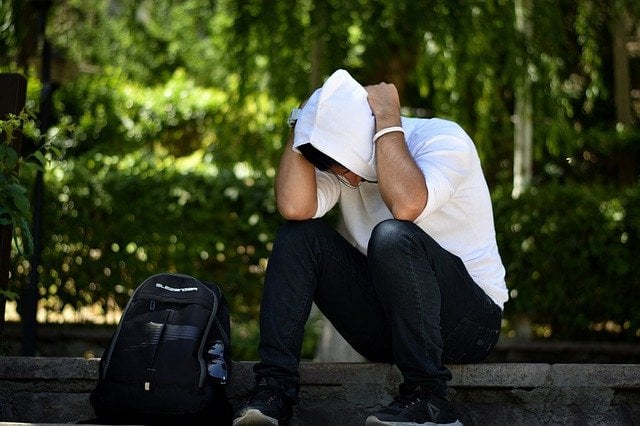It’s incredible to think that people didn’t always know that smoking can cause cancer. Scientists began proving the link in the late 1940s but it took much longer for governments to catch up with the science, and make policies that dissuade people from smoking (such as banning tobacco advertising) and help people to quit. It took even longer for tobacco companies to accept the link.
Many people still aren’t aware of the proven scientific links between obesity and cancer. When the World Cancer Research Fund network was set up in 1982, there was far less research available into how what people eat, and how active they are, affect their risk of getting cancer. Thankfully, our work is helping to change that.
But could history be repeating itself with another lifestyle factor – psychological stress? Stress is difficult to define and is treated in different ways.
For some people, stress is a minor issue that they cope with on a day-to-day basis. For others it can be a debilitating and harmful mental illness. Yet in contrast to obesity, many people already believe that stress is a significant cause of cancer.
Searching for evidence

At World Cancer Research Fund we want to help find out if there’s a link between stress and cancer, such as whether stress increases the likelihood of a cancer diagnosis, makes cancer worse, or makes it more likely to recur.
We also want to find out how this link might happen: does stress cause biological changes in the body that increase the risk of cancer? Stress may also have indirect effects on the risk of cancer by contributing to poorer lifestyle decisions, such as people turning to smoking and alcohol, a poor diet, less sleep or even making them less likely to attend cancer screening or treatment.
However, there’s a problem. Just as with smoking in the 1940s and obesity in the 1980s, there isn’t yet enough evidence on stress and cancer. We recently reviewed the scientific literature – that’s when experts look at all the papers on stress and cancer, then fine-tune the search to concentrate on the evidence that’s most recent, relevant and high quality.
We found 79 reviews – which is not many, considering our database of papers linking diet, physical activity and cancer has more than 10,000 papers from over 140 scientists across 17 or more different countries.
Early findings
The evidence we did find had limitations: the studies were small, short and often involved animals, and they often defined stress differently. However, we could make some preliminary findings:
In the general population:
- There was limited evidence of a significant link between depression or anxiety and getting cancer.
- There was limited evidence of a significant link between stressful life events and getting cancer.
- There was no evidence of a link between work stress and getting cancer.
Among cancer survivors:
- There was limited evidence of a significant link between depression or anxiety and dying from cancer.
- There was some evidence of a link between stressful life events and dying from cancer.
- There were mixed findings for the effects of stress on cancer recurrence and progression.
- People with less social support had a higher risk of dying from cancer.
- For people with better social support, stressful life events appeared to have less impact on cancer.
So how might stress affect people’s risk of cancer? Well, the evidence is still at a very early stage, but we do know that long-term stress produces hormones, including cortisol, adrenaline and noradrenaline.
This could be linked to cancer development in different ways such as suppressing our immune response, inflammation, and disrupting sleep.
What about treating stress?
We also reviewed the different treatments and coping mechanisms for people with stress. Again, the evidence is limited and inconclusive, but it suggested that:
- Psychological therapies, such as yoga, music and complementary therapies, and beta-blockers (drugs that block adrenaline and noradrenaline) might have a positive impact on immune function, stress hormones, heart rate and blood pressure.
- There is also limited evidence that nature, green space and creative activities can be beneficial.
Next steps
So what happens now? We want to provide people with the latest and most authoritative information on cancer to help everyone make choices that can reduce their risk.
In the future, we will continue to monitor the evidence linking stress and cancer to assess whether we should research further the subject either under our grant programme or our Global Cancer Update Programme, especially in the area of quality of life for people with cancer.
We will also continue to call for new and further funding – by other organisations in this field – to be made available to the scientific community at large, so that high quality research into clarifying the links between stress and cancer can be pursued more widely.

